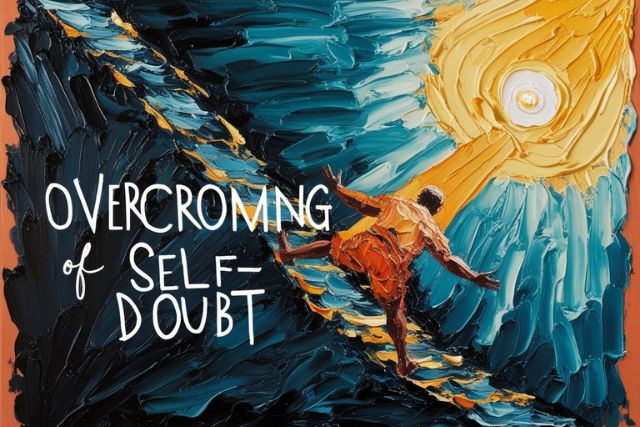The Power of Tradition: A Historical Foundation
Tradition, in its essence, is the cornerstone upon which cultures build their identity. The power of tradition lies in its ability to transmit values, norms, and collective wisdom, offering a framework that societies use to preserve their customs and beliefs. Historically, the power of tradition can be traced back to ancient civilizations, where rituals, ceremonies, and communal practices were essential in daily life. These traditions were instrumental in reinforcing communal bonds and presented a unified cultural narrative that gave people a sense of belonging and continuity.
The origins of many widely practiced traditions are deeply rooted in ancient customs that have been passed down through generations. For instance, holiday celebrations, often connected to agricultural cycles or religious observances, were vital in marking time and organizing communal activities. These festivities involved the entire community, strengthening social ties and shared cultural heritage. Likewise, rites of passage like weddings, baptisms, and funerals are universal traditions that signify key life stages and transitions, highlighting their deep cultural and social relevance.
Communal festivals, another powerful example of tradition, serve not only as celebrations but as platforms for communities to express shared values and identities. Events such as Chinese New Year or Brazil’s Carnival illustrate how the power of tradition can unite people, fostering a sense of belonging and continuity. These traditional events maintain and reinforce the social fabric of a community, making them indispensable in preserving cultural identity.
While the essence of many traditions remains unchanged, some have had to evolve to remain relevant in today’s fast-paced, modern world. For instance, the methods of celebration may shift due to technological advancements or changes in societal norms, but the core values behind these traditions often endure. The power of tradition is showcased through its adaptability—demonstrating its ability to stay meaningful and pertinent, even in contemporary settings.
The Impact of Modernization on the Power of Tradition
Modernization, characterized by advancements in technology, globalization, and societal changes, has significantly impacted traditional practices. With the advent of efficient mass production methods, traditional crafts are dwindling. Local artisans who once relied on handcrafting goods now find themselves overshadowed by mass-produced items. This trend not only affects the economy of these craftsmen but also leads to the erosion of cultural heritage embedded in their crafts.
Globalization has interconnected the world, leading to the blending and, at times, the overshadowing of indigenous cultures. Traditional practices, once passed down through generations within families and local communities, are facing unprecedented challenges. Changes in family structures, such as the increase in nuclear families, have also influenced traditional roles. Extended family gatherings and communal activities are becoming rare, replaced by individualistic lifestyles. A study by the Pew Research Center highlights how modern living arrangements are affecting intergenerational relationships and cultural practices.
Rapid societal changes can lead to the alteration or neglect of time-honored customs. Busy modern lifestyles leave little room for many traditional practices, resulting in their gradual decline. However, digital media has played a dual role. On one hand, it has contributed to the erosion of tradition by promoting global, often homogenous, culture. On the other hand, digital platforms have become valuable tools for cultural preservation. They offer avenues for sharing and reviving traditional knowledge. For instance, online tutorials and social media groups focused on traditional crafts and recipes help keep these customs alive.
Numerous studies and articles analyze these shifts, delving into the complexities of cultural preservation in the digital age. For example, articles published by academic journals like the Journal of Traditional and Modern Cultural Studies provide insightful perspectives on how digitalization influences cultural practices.
The Benefits of Honoring Tradition in a Modern World
In today’s rapidly evolving society, the preservation of traditions holds significant psychological and social advantages. At its core, tradition fosters a sense of identity and continuity, acting as an anchor in times of change. By participating in cultural rituals and practices, individuals and communities build stronger ties, reinforcing their collective identity and shared history.
One of the primary benefits of honoring tradition is the creation of community bonds. Engaging in time-honored customs allows people to connect on a deeper level, transcending generational gaps and fostering a harmonious community spirit. These collective experiences, whether it’s a family gathering or a public festivity, offer a platform for individuals to feel a part of something greater, thus enhancing social cohesion and mutual understanding.
From a psychological perspective, traditions provide a sense of stability and reassurance amidst the chaos of modern life. Rituals and customs offer predictable patterns, which can be comforting. This constancy helps individuals navigate through uncertainties by providing a familiar framework that evokes a sense of security and belonging. This is particularly important as people face rapid technological advances and societal shifts.
Moreover, traditions can coexist with modernity by evolving while retaining their foundational essence. An example of this dynamic balance is seen in the resurgence of traditional crafts and practices, adapted to fit contemporary lifestyles. Modern movements, such as the slow food movement or urban gardening projects, are reviving traditional practices and making them relevant for today’s younger generations. These initiatives breathe new life into ancient customs, demonstrating their enduring value.
Several organizations and initiatives are dedicated to promoting cultural heritage and making traditions relevant once again. Through such efforts, the integration of tradition within the framework of modern living is not only possible but also highly beneficial for maintaining a rich, diverse, and unified global society.
Balancing Tradition with Innovation for a Harmonious Future
In today’s fast-paced society, achieving a harmonious balance between tradition and innovation is not just a desire but a necessity. As we navigate through technological advancements and cultural shifts, it is vital to find ways to honor our past while embracing future possibilities. This balance ensures that while we progress, we do not lose sight of the deep-rooted heritage that forms a significant part of our identity.
One effective strategy to maintain this balance is through fusion. Fusion cuisine is a perfect example, where traditional recipes are combined with modern culinary techniques, leading to innovative dishes that retain the essence of their origins. Similarly, contemporary art forms inspired by traditional motifs and techniques bring new life to age-old expressions, showcasing how the past can seamlessly blend with the present.
For instance, an artist might incorporate traditional weaving methods into modern textile art, creating pieces that are both contemporary and rooted in heritage. This kind of innovative cultural expression not only preserves traditional knowledge but also makes it relevant and appealing to younger generations. Communities can foster such innovations by holding cultural workshops where individuals learn and experiment with merging traditional skills with modern ideas.
Encouraging active participation in both preserving traditions and fostering new ideas is essential. Participating in cultural events, visiting museums, and joining forums dedicated to traditional crafts and modern innovations can provide valuable insights and inspiration. Additionally, digital archives such as the Library of Congress or platforms like TED Talks offer accessible resources where traditional knowledge is shared and celebrated.
Ultimately, balancing tradition with innovation requires an ongoing, conscious effort from individuals and communities alike. By actively engaging with our cultural heritage and enthusiastically embracing new ideas, we can create a future that respects the richness of our past while making room for the endless possibilities that lie ahead.
Final Thoughts on the Power of Tradition
The power of tradition remains a vital force in shaping societies, even in today’s rapidly evolving world. As modernization challenges many long-standing customs, the power of tradition endures by adapting and evolving, ensuring that cultural identity, values, and community bonds continue to thrive. By embracing the power of tradition while navigating modernity, we can preserve the essence of our heritage, fostering unity and continuity in an ever-changing world.
Embrace the Power of Tradition!
Recognize the lasting impact of tradition in today’s world and its importance in shaping culture and community. Share this article with your network and inspire others to appreciate and preserve the power of tradition. Let’s keep these essential practices alive by spreading the word on social media and within your circles!















